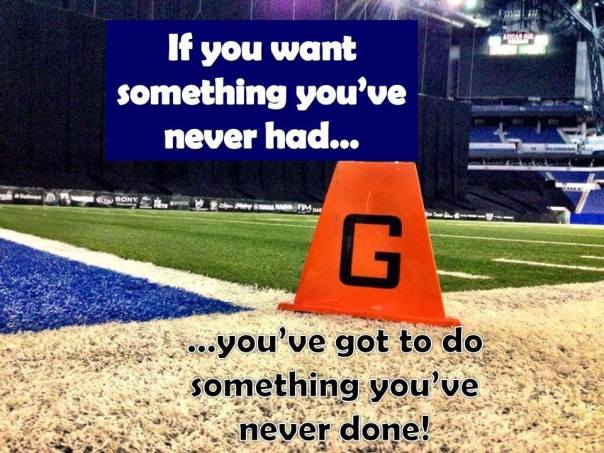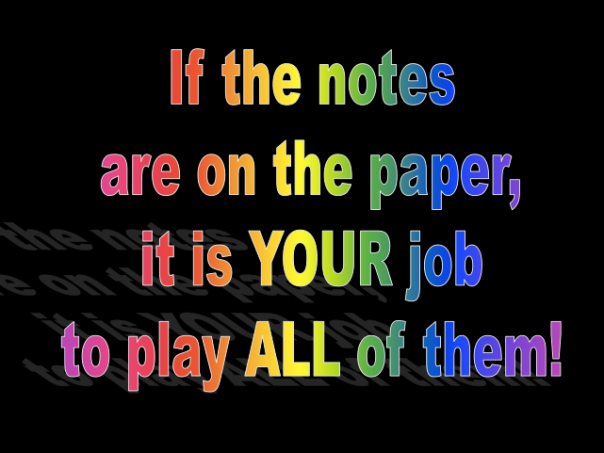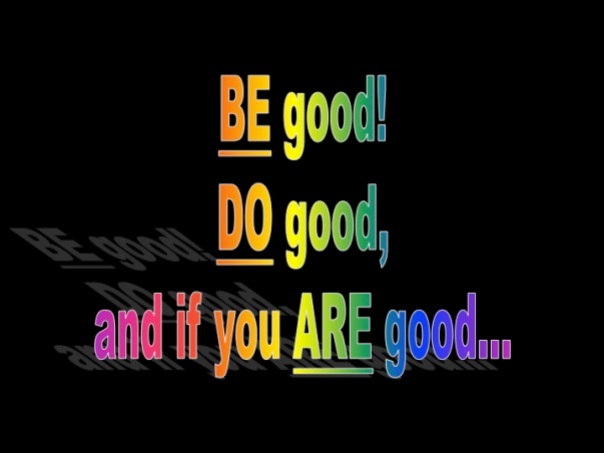
Over the years, I would share stories with my students. They really enjoyed my police encounter stories. I’ve consolidated all of them (I think) here.
Three cops in front of Salem house during father-in-law July 4th visit.
It was my second 4th of July parade at Eastern HS in Pekin, IN. That parade is the longest, continuous July 4th parade in the country.
This time, I’m married. And Joan’s dad is coming to visit.
I drove to Pekin (11 miles from Salem) to open the building but realized I had forgotten my school keys. There was not enough time to drive back to Salem to get them, so I went to a janitor’s house in Pekin. The janitor wasn’t there, but his wife was. I asked if I could borrow the school keys. She was very nervous about lending them out, but made me promise to bring them back immediately after the parade. Of course.
But, I forgot. The parade ended, the band put their stuff back in the school, I locked up and headed to Salem for dinner with Joan and her dad. I was almost there when I realized I still had the keys.
I rushed back to Pekin, over speed — and upset with myself, profusely apologized for being late with the keys, and then raced back to Salem.
I passed a car on the railroad tracks on the way into town but didn’t think much about it. I went three quarters around the courthouse square and up the slight hill that would take me to my neighborhood. I saw the police car parked on the side of that road, knew I was speeding, and concluded I’d be pulled over. I waited for the lights, but didn’t see any, so kept going.
As I was preparing to turn into the driveway of my house, there were suddenly THREE police cars (two local and one state trooper) behind my car with lights flashing. Not only was I making a great impression for the neighbors, but the large picture window in our living room offered a great view for Joan and her dad. GULP!
Only the local cop directly behind me got out of his car and came up to my window.
“Sir, I noticed that you passed a car on the railroad tracks and I was going to pull you over to talk about that. But, when I got turned around, I couldn’t catch you. And, then, you passed another car very quickly. They couldn’t catch you and called for backup. Are you okay?”
Once I explained who I was, i.e. a band director involved in the Pekin parade and the issue with the keys, he didn’t forgive me…..but he didn’t ticket me either.
The police left and I got to go in and discuss my terrifying first impression on my father-in-law.
“Did you forget to pay for your gas?”
This event happened in Huntington….and, once again, Joan’s dad is visiting.
In the 80’s, we had a Ford Conversion Van that was great for traveling with two young sons. It was not good on gas but had two gas tanks with a switch inside to go from one to the other. It could take a while to fill the tanks, so if I was at a station that had two pumps close enough, I would put a nozzle in each tank.
This was prior to “pay-at-the-pump”, so I would normally finish up and go inside to pay. I would tell the cashier I had “pumps 1 & 2”, but most of the time they already knew that.
On one particular day at a station just a couple blocks from our Vine Street home in Huntington, I can not recall whether I failed to ask or notify about the two pumps. I should have known there was a problem with the amount, but my mind really wasn’t there, for some reason. One of those reasons could be that Joan’s father was visiting. (Note: that he was visiting during my Salem story.)
From the gas station, I went home and was in our living room with Joan and her dad when there was a knock at the door.
The local policeman simply asked if I had forgotten to pay for my gas. I explained to him that I had, but then together we figured out I had paid for one of the pumps, but not both. I assured him I would take care of it immediately. And I did.
Don’t Mess With Texas
I was pulled over three times in thirty minutes.
The Fund Raising Association to which my company (QDP Corporation) belonged had its annual meeting/convention was in Houston Texas. I drove my 1978 Ford Conversion van and transported 5-6 other people. It was a comfortable way to travel and cheaper than buying that many airline tickets.
The convention ended at the end of a day (@5pm) and after loading up, we departed for the drive home. With multiple drivers, the plan was to drive through the night.
It was late into the evening when I noticed a police car going the other way on the highway make a u-turn after it had passed me. I didn’t think I was speeding, but as he caught up with me and turned on his lights, I pulled over. It was a town marshall who wanted to point out that I had a rear tail light out. No ticket. I assured him I would get it fixed — and we were on our way.
A few minutes later the same thing happened. U-turn, flashing lights, and a pullover. This time it was a city policeman (I don’t remember the city). Same conversation. Same assurance and we were off again.
Within thirty minutes from the first stop — it happens again. This time it is a Texas Ranger. He asks me to step out of the van and takes me to the back to show me the light out. This time I asked where I could get a light bulb this time of night. He said there was a truck stop a few miles ahead. I assured him we would stop. No ticket.
At the truck stop, we purchased the bulb and a screwdriver and made the repair. As we pulled out of the truck stop, the Texas Ranger was parked across the street. He did not pull me over again.
I did buy a “DON’T MESS WITH TEXAS” t-shirt at the truck stop.
A CDL helped….for a while, it seemed
For a few years at QDP Corporation, we had a large enough delivery truck that a driver had to have a “CDL” (Commercial Driver’s License). It required renewal more often than a regular license, but during the years I had one, I did not get a ticket when driving my car, even though I was pulled over multiple times.
It seemed like such a reasonable amount to pay for “ticket insurance” that I kept it going even after we sold that truck and I no longer needed it. But my luck finally ran out…and then it was worse.
I was required to go to a driver training session. It was run by a State Trooper and nearly all of the participants were truck drivers, complete with beards, bellies (I have that one covered) and a temperament that looked like they were ready to throw their chair at the Trooper.
After that, I allowed my CDL to expire and went back to a regular Driver’s License.
I’ve had a few speeding tickets over the years, but most of my violations are for not slowing fast enough coming into a town. I would turn off the cruise when the speed limit dropped, but would not always touch the brake and, therefore, if it dropped too quickly from 55 to 45 to 35….I would still be going too fast.
I do better now and haven’t had a ticket for several years.
Note: the remaining stories happened while I was teaching in Huntington
Nearly fired on the first day on the job?
My sons were in the bands between 1995-2001. During a Band Parent meeting, I let the director, Thaine Campbell, know that I had been a band director, was a clarinetist, and would be happy to help any way I could.
He started using me as a clarinet and woodwind sectional person during band camp. After my sons graduated, he added me to the “paid” staff for camp.
I was hired in the summer of 2005 as the part-time Asst Director. My first day on the clock was the first day of band camp. I was continuing to run sectionals, and on the first day of camp, the clarinets were with me in one of the special ed rooms.
A tradition that we had (which I had started earlier as a band parent volunteer worker) was to “nickel” the clarinets of the rookies.
NOTE: A nickel fits perfectly inside the barrel of a clarinet. It completely blocks the airflow and it is impossible to play. The ‘joke’ would happen when I would ask the group to play. Most of the rookies would react immediately and quickly figure it out. But others would fake playing, which we all knew they could not.
I asked the rookies to set their instruments in their chair and to go out into the hallway with the section leader for a few minutes. The section leader (usually a senior) was to tell them about expectations for camp, learning music, etc.
While the nickels were being inserted, the classroom door starts to open. Not wanting the rookies to re-enter too soon, one of the seniors ran over and slammed the door shut. When we finished, we opened the door for the students to return.
A minute or so after that, the principal, the resource officer (or someone in uniform), and a teacher were coming into the room with walkie-talkies raised, ready to call for backup. The teacher for that room had come into the school and was opening the door to her classroom when it was “slammed in my face”. Yes, it was.
The seniors took over and explained that it was a long-standing tradition and they misunderstood the door opening. Yes, they were protecting me. They could have said it was a tradition I started and a prank I was overseeing.
I bet that was a story often told during the rest of that band camp day. It certainly became one of my favorite “Storytime” stories.
Caught with a drum
The community chorus has been performing Handel’s “Messiah” every December for decades. Over the years, they have borrowed risers, music stands and lights, and timpani from the high school to supplement what they are able to get from the university.
I got a call requesting the use of just one of our timpani. I took my minivan over to the high school, backed it up close to the service doors, opened the back, and went inside to the band room. As I was rolling the timpani down the hallway toward the service area, I noticed a policeman standing just outside Door 34.
I went over and opened the door for him and immediately had to answer the question, “Who are you and what are you doing?”
All was well.
He explained that it looked suspicious to see a vehicle backed up to the large service doors with the back opened.
Surrounded in the parking lot
My report time for school has usually been after 5A lunch (about 12:15pm). Sometimes I stop on the way and pick up something for lunch. And since this was a marching band rehearsal day, I was parking in the west lot (tennis court side). From where I was sitting, I could see students in the cafeteria. It would be a great observation spot for someone with ill intent during student lunch.
It wasn’t unusual to see a police car come around from the front of the building. They do periodically patrol the parking lots, especially when they are looking for a particular car or checking parking stickers.
But then, I noticed this police car had stopped almost touching my rear bumper. About the time I saw the officer getting out of the car, another car pulls up and pins me in from the front. And then a third car.
I showed my school ID, explained my start time to work and they seemed satisfied and left. Apparently someone had called 9-1-1- from the area of the parking lot. Ok. Yes. I would want them to check that out.
It made a great “Storytime With Mr. G. story in band rehearsal.
Police and Bubble People
Over the years I have been pranked several times. Even though I have no trees, I’ve been Tee-peed multiple times (students were careful to lay the paper in ways that it was easy to clean up). They have chalk arted my sidewalks and driveway, window painted both house and van windows. They filled my car with balloons. At school I was even plummed (several hats with plumes on my desk).
The most organized and persistent group was “The Bubble People”. They army manned the porch and yard with those tiny green toy army men and vehicles, saran wrapped the front and back doors to the house, and would leave “notes” on my home or on my desk at school. I really struggled with finding out who they were. No one would “rat” them out. I don’t remember how I got the first couple names, but over time, was confident that I had discovered the group. Flute players. Of course.
I contacted a police officer I knew and asked for help getting even. He brought a friend, and so, during a rehearsal one day, a pair of police officers came into the room. I read a list of names and asked those students to step into my office. I went in with the police officers and we closed the door.
(I’ve wondered what the rest of the band students were discussing during this time. They were very quiet — probably trying to listen).
One of the officers started reading off “charges”…..
“You are in violation of statute 1234.B and statute abcd.x.”
The girls were getting anxious. When one of the officers unhooked his handcuffs, one of the girls broke down and the officer confessed, “Sorry, Mr. Gardner. I cannot continue…..”
I think my only response to the group was, “GOTCHA”. And they went back to class. I told the group:
“I just want you to know that I can take a joke.
As long as you are not disrespectful, and no property or individual is hurt,
I can take it. But know this. I also try to get even. And you have now witnessed an example.”
Like this:
Like Loading...
 by John Gardner (via LinkedIn)
by John Gardner (via LinkedIn)




 I prepared this list for one of my woodwind students and modified it some to include other instruments. There are links within this article to other articles I’ve written about literature selection, accompanists and the judging scoresheet categories.
I prepared this list for one of my woodwind students and modified it some to include other instruments. There are links within this article to other articles I’ve written about literature selection, accompanists and the judging scoresheet categories.
 There were few times I ever got a ride to or from school other than band practices. Charlie C lived in the trailer park behind Rosedale pool and he had a car….or was allowed to drive his parents’ car. He would sometimes drive me. Mom would on rare occasions.
There were few times I ever got a ride to or from school other than band practices. Charlie C lived in the trailer park behind Rosedale pool and he had a car….or was allowed to drive his parents’ car. He would sometimes drive me. Mom would on rare occasions. 













